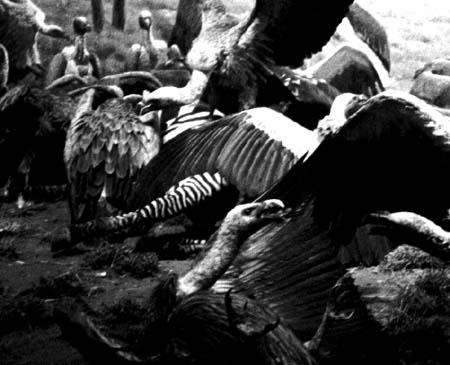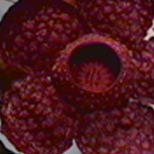The ‘R’ complex
It’s the end of summer and I am sitting in my car, waiting for a ferry and looking at a limpid, grey sea. Big black vultures are spiraling lazily above me, riding the thermals, wafting up from the tarmac, on their ragged wings. They are seeking death with the quiet urgency of those who know its inevitability, traversing through the vast columns of moving air that define their universe, with nonchalant ease. It will come, and they will feed.

vulture diorama at American Museum of Natural History
I’m re-reading Martin Bax’s The Hospital Ship and am once again struggling with the great nagging questions of “Are we fucked?” and “How do I get myself organized now that summer is over?”
Bax’s book posits a hospital ship in some period in some parallel reality that is plying the seven seas, in the middle of a vast pandemic of violence. People are slaughtering each other everywhere (literally crucifying each other), and piling up the casualties on the quays. Nobody really knows what’s going on and the news coming in by radio to the ship is disjointed and contradictory. The reports are all transcribed on paper and pinned to a wall but sadly:
There seemed to be a chronic shortage of pins to fix up the reports, so that in consequence they blew away and anyone in the stern of the ship could reach out a hand and collect bulletins from the air as they drifted by in an endless paper-chase over the stern of the boat and on into the sea
I see in this passage an uncomfortable parallel to my own struggle with personal organization. – Incoming bulletins frequently fly off of the metaphorical boat and on into the sea, and I start to lose track of the big picture. I manage to snatch a few bulletins from the air as they careen by, and this becomes the basis for my blog, but mostly they wind up floating on the grey waves, gone forever. What I am managing to piece together, doesn’t look too good. Like the world described in ‘The Hospital Ship’, I’m beginning to think we are fucked.
Sometimes the information that was thus collected seemed to suggest that business was much as usual all over the world, while at other times the suggestion was that total collapse had already occurred.
Bax nailed it, and many of us increasingly feel it. The constant lump in our throats, the shortness of breath and the deep sadness. The constant attempts to pin down some transient bits of reality before they evaporate into nothing. At least we have our blogs . . . Perhaps total collapse HAS already occurred. Some ecologists place the point of no return somewhere in the 1980’s. It has to do with the collapse of Antarctic iceshelves of an order of magnitude never seen before in human history. Maybe we should feel somehow strangely liberated. At least we have certainty. . .
But how do I organize my handbasket, as I careen in it towards hell? I think about this all the time. . .
My friend Laura has given me new hope in that direction. She has shown me the brilliant work she is doing using Plone and Zope– prodigious open source content management systems that seem to hold great promise. The websites that she creates with these tools cool the fevered brow of my organizationally challenged mind with reassuring rows of tabs and elegant, transparent, immediately comprehensible architecture. I must learn how to use these tools soon, before I descend into deep entropy. It is so easy just to drift . . .
and
As a result, I can’t help feeling a bit twitchy. Perhaps its my ‘R’ complex. ‘R’ for reptile, the lizard mind that straddles just above the core of my neural chassis. Lizards appear to experience things more or less directly, without the burdensome freight of intellect. They process their perceptions, predominantly with their ‘R’ complex. This pre-lingistic pattern-recognizing mode can get deeply fried by the constant flux of bulletins pouring in from the cerebellum. The world’s highest paid executive coach , told me (how this happened is a long story, best saved for another posting) that I “think too much”, and maybe he is right. Maybe my sense of ‘self’, is getting in the way of happiness. But somewhere in there beats the heart of a lizard. And lizards have lived through a few mass extinctions . . .
Recently, after feeling a little overwhelmed, I took off all my clothes and jumped into the ocean, hoping it would help me ‘re-boot’. This in itself is not as radical as it sounds, in the cultural Galapagos which I call home. Clothing is optional at the beach. In fact, there are some people around here whom I don’t recognize with their clothes *on*. The water was cold and I soon emerged to bask, naked on a rock ledge. Somewhat zoned, I let my gaze fall vacantly on the crinulations and tessellations in the rock and was startled to come upon a tiny eye winking at me from the darkness of a nearby crack. Was it my disembodied lizard mind?
It was a Northern Alligator Lizard, engaged in the same thermotropic behaviour as me. Basking. A lizard at the northern extreme of its range. At this latitude they have adapted to the cold by becoming live bearing, ensuring the survival of their heat-loving young by sitting for hours in the weak northern sun.
So we had a moment of poikilothermic bonding, and I tried to cast my mind back to what I might have been thinking during the Triassic. I moved my head and the lizard skittered away.
I guess it panicked . . . .

Northern alligator lizard, Vancouver Island, British Columbia



